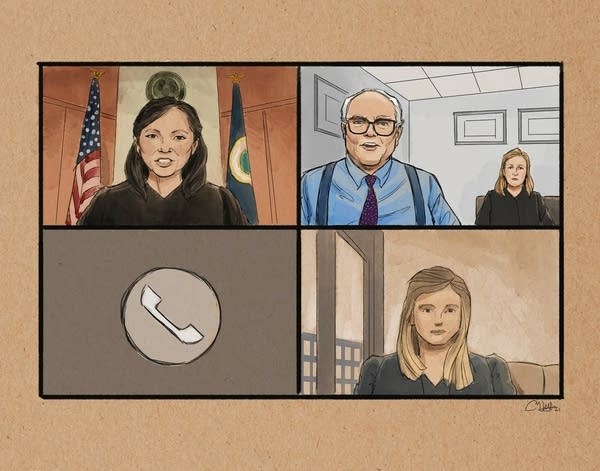Daunte Wright killing: Judge OKs livestreaming ex-cop's trial

Go Deeper.
Create an account or log in to save stories.
Like this?
Thanks for liking this story! We have added it to a list of your favorite stories.
A Hennepin County judge on Tuesday agreed to let media record, broadcast and livestream the high-profile trial of Kimberly Potter, the ex-Brooklyn Center police officer charged in the killing of Daunte Wright.
Judge Regina Chu acknowledged recent protests at her home, but said the decision to allow courtroom cameras was made earlier and was “based solely on concerns for public health and safety given the ongoing pandemic.”
The trial is set to begin Nov. 30.
In early August, Chu had granted Potter's request to deny audio and video coverage of the upcoming trial.
Turn Up Your Support
MPR News helps you turn down the noise and build shared understanding. Turn up your support for this public resource and keep trusted journalism accessible to all.
In reversing herself Tuesday, she cited the huge public interest in the case, and a “risk of crowds gathering at the (Family Justice Center), exposing staff and those who might seek to attend the trial to the risk of infection.”
Wright, 20, was killed in April during a traffic stop. As officers struggled to take him into custody, Potter drew her handgun and shouted “Taser” several times before shooting Wright.
The Brooklyn Center chief said later that Potter had meant to grab her Taser but instead pulled her service weapon before firing. She faces first-degree and second-degree manslaughter charges.
Media groups, including MPR News, had urged Chu to allow audio and video broadcasting similar to the spring trial of former Minneapolis police officer Derek Chauvin, who was convicted of murdering George Floyd. They argued COVID-19 remained a threat to public safety and that requiring media to attend in person to cover the trial would pose a risk.
Potter’s attorney Earl Gray said he had not read the order and declined comment.
Minnesota Attorney General Keith Ellison, whose office is prosecuting the case, applauded the decision.
"It is important for both public buy-in and public health during the ongoing pandemic. I also strongly agree with the judge about the importance to our democracy of safeguarding an independent and impartial judiciary,” Ellison said in a statement.


